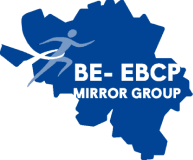Project
HDACbyCRYOEM
High-resolution cryo-EM structures of the human and yeast Sin3 histone deacetylase complexes
1 October 2022 - 30 September 2024
Funded by the Marie Skłodowska-Curie Actions programme, the HDACbyCRYOEM project aims to utilise cryo-electron microscopy (cryo-EM) to solve the 3D structures of human and yeast HDAC complexes at near-atomic resolution.
Project description
Histone deacetylase (HDAC) complexes are the main transcriptional repression machineries in eukaryotes. Disruption of their functions can lead to various diseases such as cancers, inflammatory diseases, and neurological disorders. HDAC complexes are composed of multiple subunits that assemble around HDAC enzymes, which have been the most exploited targets for developing small molecule therapeutics.
To expand the diversity of targets and inhibitors available to study HDAC complex biology and fight HDAC-related diseases, the applicant developed phenotypic screens focused on the Sin3 HDAC complex in human and yeast during his PhD training. He also used proteomics approaches to study the global cellular effects of new compounds and predict their targets. However, the absence of high-resolution 3D structures for the Sin3 HDAC complex has hampered the precise understanding and validation of how drugs bind to specific subunits and perturb the overall architecture of the complex to reprogram its biological functions.
Here, we are combining the expertise of the applicant in HDAC complex biology and druggability, to that of his host laboratory in cryo-electron microscopy (cryo-EM) to solve the 3D structures of the human and yeast Sin3 HDAC complex at near atomic resolution. This complex is highly conserved between species and is formed by a dozen proteins, making it an ideal candidate for single-particle cryo-EM.
The applicant has already acquired promising preliminary data, including partial purifications of both human and yeast Sin3 HDAC complexes. The pioneer structures that will emerge from this work will have a high impact in the fields of transcriptomics and epigenetics since they will improve our understanding of HDAC complex arrangements, while helping validating long-standing hypotheses on transcriptional repression mechanisms.
The proposed 3D models will also serve as starting points for further systematic structure-based design of new HDAC complex inhibitors.
Funding programme & Type of action
Funding programme : Horizon Europe
Type of action : Marie Skłodowska-Curie Actions (MSCA)
Grant agreement number : 101067095
Duration
2 years
